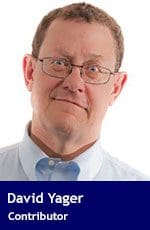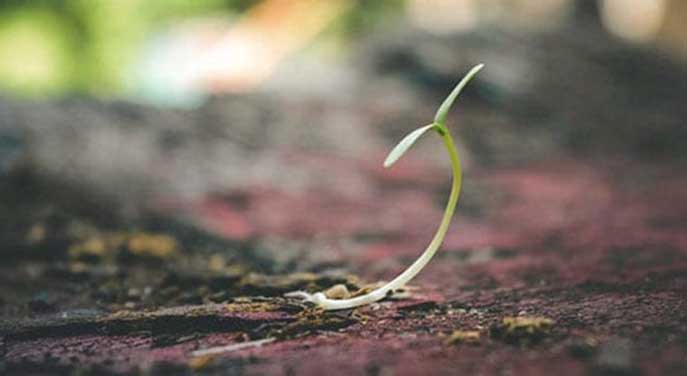 The old saying goes, “No news is good news.”
The old saying goes, “No news is good news.”
But in the 21st-century smartphone/internet era, it should read, “Good news is no news.”
Driven by today’s ultra-competitive media, headlines have increasingly become what has been coined “click bait” – capture eyeballs with something awful happening to somebody somewhere.
That’s why you’ll never see “7.9 Billion People Didn’t Die Yesterday” or “95 per cent Of Canadians Are Employed.”
Political news is dominated by the official opposition declaring the governing party incompetent, and vice versa. Images of every forest fire, flood, hurricane or tornado on the planet appear on the world’s 6.3 billion smartphones in seconds. This helped teenager Greta Thunberg become famous when she told us, “The world is on fire.”
Several things are indeed going poorly, including the war in Ukraine, rising inflation and interest rates, and the energy crisis in Europe. When you listen to or watch the news, you can’t help but be concerned, even fearful.
So we spend increasingly less time counting our blessings. Long forgotten are U.S. President John F. Kennedy’s famous words from his 1961 inaugural address, “Ask not what your country can do for you, but what you can do for your country.”
These thoughts crystallized during a road trip from Calgary to Lloydminster to participate in the 2022 edition of the Lloydminster Heavy Oil Show. I was a guest speaker at the kickoff banquet on Sept. 12.
Six hours of windshield time is a great way to escape your smartphone. For personal safety, it’s actually essential.
I’ve made dozens of trips to Lloydminster in my oilfield services career. “Lloyd” is the epicentre of a major heavy oil producing area dating back to the 1940s. The resource is huge, and its production is significant.
While Google Maps suggests Calgary drivers take Highway 2 to Edmonton and then 16 to Lloydminster, I prefer to go cross-country, taking a wide selection of primary and secondary roads. They’re all paved and traffic is light.
Six hours provides plenty of time to look out the window and truly appreciate where Alberta’s economic prosperity comes from. You see for yourself what makes this province a great place to live, with things that don’t exist in a big city.
Ultimately, it is bountiful resources, free enterprise, advanced technology, hard work and human ingenuity – not genius central planning – that drives our economy.
Alberta exists in its current form because of massive raw and processed resource production and exports. Fuel, food fertilizer, and petrochemicals all underscore why market access remains an important economic and political issue.
But 58 per cent of Albertans live in four major urban centres: Calgary, Edmonton, Lethbridge and Red Deer. Too many don’t see enough of small-town Alberta, a big reason why rural and urban Albertans think and vote differently.
There are lots of road options to Lloyd, and I always take a different route there and back. It can include bigger centres like Strathmore, Ponoka, Stettler, Camrose, Drumheller or Wainwright. If you don’t like traffic lights, travel instead through or by Beiseker, Three Hills, Hanna, Castor, Forestburg, Consort, or Trochu.
You’ll drive by an endless vista of cultivated fields, oil wells, gas wells, batteries, grain elevators, storage vessels, fertilizer and seed distribution facilities, and gas plants. The roads pass hundreds of farmyards full of houses, barns, outbuildings, and a large array of trucks and farming equipment.
Travel via Hardisty and you’ll see the massive oil storage tanks that comprise the main staging point for Alberta’s petroleum exports. The nearest place with this much oil stored this way is Cushing, Oklahoma.
My trip this year was made during a much better harvest than in 2021. Thankfully. The world desperately needs food.
Many fields were already cut, and the rest contained wheat, canola and other crops waiting to be turned into money. Lots of equipment working the fields, lots of trucks hauling the bounty to the nearest elevator or processing facility.
Lloydminster was once again buzzing with visible prosperity. Help-wanted signs were everywhere. Oilfield equipment was coming and going. Stores full, service and support businesses busy.
We’re continuously reminded of all the problems, but when I looked at the faces of the 500 people at the oil show banquet, I was struck by the thought that right now, Lloydminster may be the best place to live in the world.
Food and fuel in limitless supply. Good jobs for everyone who wants to work. Affordable housing. Opportunity. Recreational facilities. Schools. A hospital shared by Alberta and Saskatchewan.
And the crowd was universally happy, at least that night. After pandemic lockdowns and years of tough times, their oil show was back for the first time in four years. It was a proud and important symbol of a community and industry that was finally and firmly back on its feet.
Most of Alberta is feeling that way again. With the recovery in oil and gas and better weather and prices for crops, the people who create the resources the world needs have a smile on their faces and a spring in their steps.
Too bad more Canadians don’t visit rural Alberta and learn first-hand where the necessities of life come from. If they did, our country would be heading in a much different direction.
David Yager is an oilfield service executive, oil and gas writer, and energy policy analyst. He is author of From Miracle to Menace – Alberta, A Carbon Story.
For interview requests, click here.
The opinions expressed by our columnists and contributors are theirs alone and do not inherently or expressly reflect the views of our publication.
© Troy Media
Troy Media is an editorial content provider to media outlets and its own hosted community news outlets across Canada.



They don’t go there for the same reasons Vancouverites don’t visit Chilliwack, Cloverdale, Agassiz or Maple Ridge. They’re afraid to… ‘but the coffee is so bad at those truck stops.’ You are correct, most urbanites have zero clue of what they’re seeing in rural Canada. They just want to get from Point A to Point B.
They don’t go there for the same reasons Vancouverites don’t visit Chilliwack, Cloverdale, Agassiz or Maple Ridge. They’re afraid to… ‘but the coffee is so bad at those truck stops.’ You are correct, most urbanites have zero clue of what they’re seeing in rural Canada. They just want to get from Point A to Point B.
They don’t go there for the same reasons Vancouverites don’t visit Chilliwack, Cloverdale, Agassiz or Maple Ridge. They’re afraid to… ‘but the coffee is so bad at those truck stops.’ You are correct, most urbanites have zero clue of what they’re seeing in rural Canada. They just want to get from Point A to Point B.
They don’t go there for the same reasons Vancouverites don’t visit Chilliwack, Cloverdale, Agassiz or Maple Ridge. They’re afraid to… ‘but the coffee is so bad at those truck stops.’ You are correct, most urbanites have zero clue of what they’re seeing in rural Canada. They just want to get from Point A to Point B.
They don’t go there for the same reasons Vancouverites don’t visit Chilliwack, Cloverdale, Agassiz or Maple Ridge. They’re afraid to… ‘but the coffee is so bad at those truck stops.’ You are correct, most urbanites have zero clue of what they’re seeing in rural Canada. They just want to get from Point A to Point B.
They don’t go there for the same reasons Vancouverites don’t visit Chilliwack, Cloverdale, Agassiz or Maple Ridge. They’re afraid to… ‘but the coffee is so bad at those truck stops.’ You are correct, most urbanites have zero clue of what they’re seeing in rural Canada. They just want to get from Point A to Point B.
They don’t go there for the same reasons Vancouverites don’t visit Chilliwack, Cloverdale, Agassiz or Maple Ridge. They’re afraid to… ‘but the coffee is so bad at those truck stops.’ You are correct, most urbanites have zero clue of what they’re seeing in rural Canada. They just want to get from Point A to Point B.
They don’t go there for the same reasons Vancouverites don’t visit Chilliwack, Cloverdale, Agassiz or Maple Ridge. They’re afraid to… ‘but the coffee is so bad at those truck stops.’ You are correct, most urbanites have zero clue of what they’re seeing in rural Canada. They just want to get from Point A to Point B.
They don’t go there for the same reasons Vancouverites don’t visit Chilliwack, Cloverdale, Agassiz or Maple Ridge. They’re afraid to… ‘but the coffee is so bad at those truck stops.’ You are correct, most urbanites have zero clue of what they’re seeing in rural Canada. They just want to get from Point A to Point B.
They don’t go there for the same reasons Vancouverites don’t visit Chilliwack, Cloverdale, Agassiz or Maple Ridge. They’re afraid to… ‘but the coffee is so bad at those truck stops.’ You are correct, most urbanites have zero clue of what they’re seeing in rural Canada. They just want to get from Point A to Point B.
They don’t go there for the same reasons Vancouverites don’t visit Chilliwack, Cloverdale, Agassiz or Maple Ridge. They’re afraid to… ‘but the coffee is so bad at those truck stops.’ You are correct, most urbanites have zero clue of what they’re seeing in rural Canada. They just want to get from Point A to Point B.
They don’t go there for the same reasons Vancouverites don’t visit Chilliwack, Cloverdale, Agassiz or Maple Ridge. They’re afraid to… ‘but the coffee is so bad at those truck stops.’ You are correct, most urbanites have zero clue of what they’re seeing in rural Canada. They just want to get from Point A to Point B.
They don’t go there for the same reasons Vancouverites don’t visit Chilliwack, Cloverdale, Agassiz or Maple Ridge. They’re afraid to… ‘but the coffee is so bad at those truck stops.’ You are correct, most urbanites have zero clue of what they’re seeing in rural Canada. They just want to get from Point A to Point B.